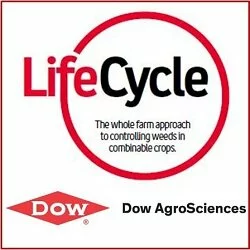Winter Jobs, Open Days & Our Responsibility
So it’s come around again…. I have put off writing a blog until I received a gentle nudge reminding me that it was time again to attempt to remember what I’ve been doing since my last post. Luckily this has mostly involved completing the spray store in time for the open day with Agrii, Natural England and DEFRA. So as you can imagine everything had to be right… and in line with current legislation.
As I have mentioned before, the majority of the hard work has been done by my colleagues, however I feel I can take credit for the paint job on the shed, with fifty litres of exterior emulsion going on in four coats it took a little time to do.
Then I set about the floor… preparation for the Epoxy floor paint was tedious… involving scraping every single piece of mud and dirt off the floor, then applying hydrochloric acid to deep clean it. The Epoxy paint was used specifically because it gives a waterproof finish to create a bunded floor store by being painted partially up the walls as well. On a side note I would suggest that if you are ever to use a two-pot Epoxy paints I would suggest very well ventilating the room… Red Bull has got nothing on Epoxy.
Some of the other features of the chemical store are the 20,000 litres of rain water harvesting, with another 20,000 planned for the next phase. The integrated pony flow meter to the filling point to allow for accurate filling is a big plus… meaning I can add that extra level of accuracy to the tank loads. We also have a permanently plumbed cold water pressure washer to allow for keeping any chemical or mud build up from the machine on a daily basis if needs be, this is all done within the confines of the chemical store and the liquid is captured and directed to the bio-filter. This washing facility allows for easy maintenance and the ability to spot any potential breakdowns by looking over the machine at the end of the working day. With a walk through passage from the filling shed to the chemical store we have a streamlined system to hopefully reduce the filling time and increasing productivity. We also came across the problem of how to safely transport chemical from farm to farm to further increase productivity. The idea of a fully bunded trailer that could be loaded with a forklift was discussed but that came at a large cost, instead my colleague Jeremy suggested bunded pallets, which are used in the food industry, they are fully moulded hard plastic that is more than capable of holding the 110% volume required for bunding, and are a cheap simple and easily transported solution to the problem of safely and legally transporting chemical.
On the 30th of January we held an open day for the chemical store, this was hosted by Agrii, and there were some very informative talks from many speakers. The open day was a success with members of the Environment agency in attendance and two members from N.I.A.B in Cambridge, and many other members of the agricultural community all turning out to see what the future of chemical and sprayer storage is going to be. The feedback was all very positive, and with the ability to apply for up to 50% grant funding to help build the shed it may not be as expensive as you fear. And the opinion is that you are going to want to get in early before the government make these insulated spray store a legal requirement, because once they do there will be no grant funding.
Just to leave you with a thought that stuck with me; it takes 2 nozzles on a sprayer 1 second to contaminate 1.5 miles of brook water, to above the national drinking water standard. It is shocking to realise how little it takes to contaminate something which we all take for granted. Turn the tap on and you have clean, safe drinking water. Bear in mind that a large percentage of contamination comes from the filling point of your sprayer, if you live on your yard then you are contaminating your own water source…. doesn’t seem like a nice idea does it…
We all have a responsibility as farmers to do whatever is practical and reasonable to safeguard the environment that we live in and rely on for our incomes and livelihoods. We are losing enough chemicals from the approved lists as it stands without adding bad practice and poor standards to the reasons for losing weapons in our armoury.














 Saving...
Saving...
Add a comment
You must be logged in to post a comment.